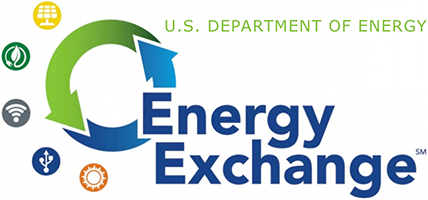Pittsburgh, PA

The Federal Government produces a wide range of credible climate information for use by a variety of sectors and stakeholders. This information, as well as products that enhance understanding around the effects of climate change, are known as climate services. Climate services can include information about climate projections, drivers, impacts on humans and nature, as well as adaptation strategies. This session will explain climate services and describe their application for climate-informed decision-making. The session will also demonstrate two examples of climate services: the Climate Risk and Resilience Portal and the Climate Mapping for Resilience and Adaptation tool. From this session, you will learn how to use climate services to develop and implement climate-informed projects.
Instructors
Julian Reyes, Assistant Director for Climate Services, White House Office of Science and Technology Policy Read Bio
Dr. Julian Reyes is Assistant Director for Climate Services at the White House Office of Science and Technology Policy, and also Deputy Director for Services at the U.S. Global Change Research Program. In his most recent role as the National Coordinator for the USDA Climate Hubs, Julian provided connection and cohesion across the regional Hubs, integrated applied climate work across USDA and the federal government, and engaged partners and stakeholders. He also was an author on the Fifth National Climate Assessment. Prior, Julian was an AAAS Science and Technology Policy Fellow at the U.S. Department of State in their climate change office. Julian was also a Climate Hub Fellow with the USDA Southwest Climate Hub from 2016 to 2019. He earned both his B.S. and PhD in civil engineering from Washington State University. He was also a Fulbright Research Scholar in Germany.
Tom Wall, Director, Center for Climate Resilience and Decision Science, Argonne National Laboratory, Department of Energy Read Bio
Dr. Tom Wall is the Director of Argonne National Laboratory's Center for Climate Resilience and Decision Science (CCRDS). CCRDS works to combine Argonne's deep capabilities in climate science and modeling, advanced computing, infrastructure risk analysis, and decision science to translate climate science and model data into actionable information for decision makers. This information drives proactive resilience planning and investment for industry partners, the engineering and planning sectors, state and local governments, and local communities. Tom also has extensive experience in the area of critical infrastructure analysis and protection and leads infrastructure-focused projects for the Department of Homeland Security, the Federal Emergency Management Agency, and state and local governments. Tom has an Honors B.S. in Civil Engineering from Oregon State University, and an M.S. and Ph.D. in Civil Engineering from Georgia Tech.
Sarah Abdelrahim, External Policy Lead, Federal Emergency Management Agency Read Bio
Sarah Abdelrahim is the External Policy Lead in FEMA's Office of Policy and Program Analysis. In her role, she works across the agency to coordinate FEMA's engagement in the development and implementation of interagency policy. She is also a co-chair of the U.S. Global Change Research Program's (USGCRP) Federal Adaptation and Resilience Group. Sarah first joined FEMA in 2019, where she worked with the National Flood Mapping Program in the Risk Management Directorate. From 2022-2023, she was on detail to the White House Office of Science and Technology Policy as the Deputy Director of USGCRP. Prior to joining FEMA, Sarah worked with the U.S. Department of the Interior's Office of Policy Analysis. She has also held positions supporting NOAA's Climate Program Office and the United Nations Environment Programme. Sarah has a M.A. in Climate and Society from Columbia University and a B.S. in Physical Sciences from the University of Maryland.
Lindsey Rustad, Acting Director, USDA Northeast Climate Hub and Research Ecologist, USDA Forest Service Read Bio
Dr. Lindsey Rustad is the Acting Director of the USDA Northeast Climate Hub, providing expertise on the impacts of global change on northeastern forests. She is also a Research Ecologist for the USDA Forest Service Center for Research on Ecosystem Change in Durham, NH and a Team Leader for the Hubbard Brook Experimental Forest in NH. Her areas of expertise include biogeochemistry, global change impacts, and advanced environmental sensor systems. Her current interests include implementation of cybertechnology in forests across the northeastern United States and integration of Arts and Science at long term ecological field stations. She received a B.A. in Philosophy at Cornell University in 1980, a M.S. in Forest Science at the Yale School of Forestry and Environmental Sciences in 1983, and a Ph.D in Plant Science in 1988 at the University of Maine.
Learning Objectives
Upon completion of this course, attendees will be able to:
- Identify what climate services are;
- Recognize the components of the climate services knowledge value chain;
- Identify available climate data, tools, and partnerships;
- Recognize best practices for leveraging climate information for decision-making.









